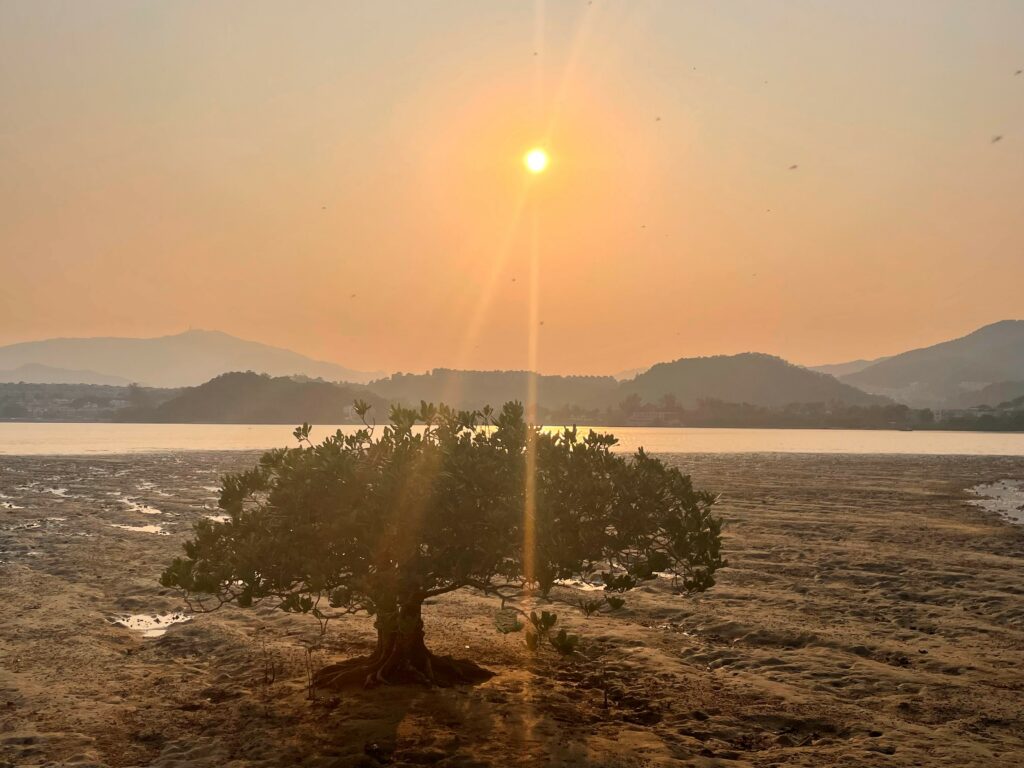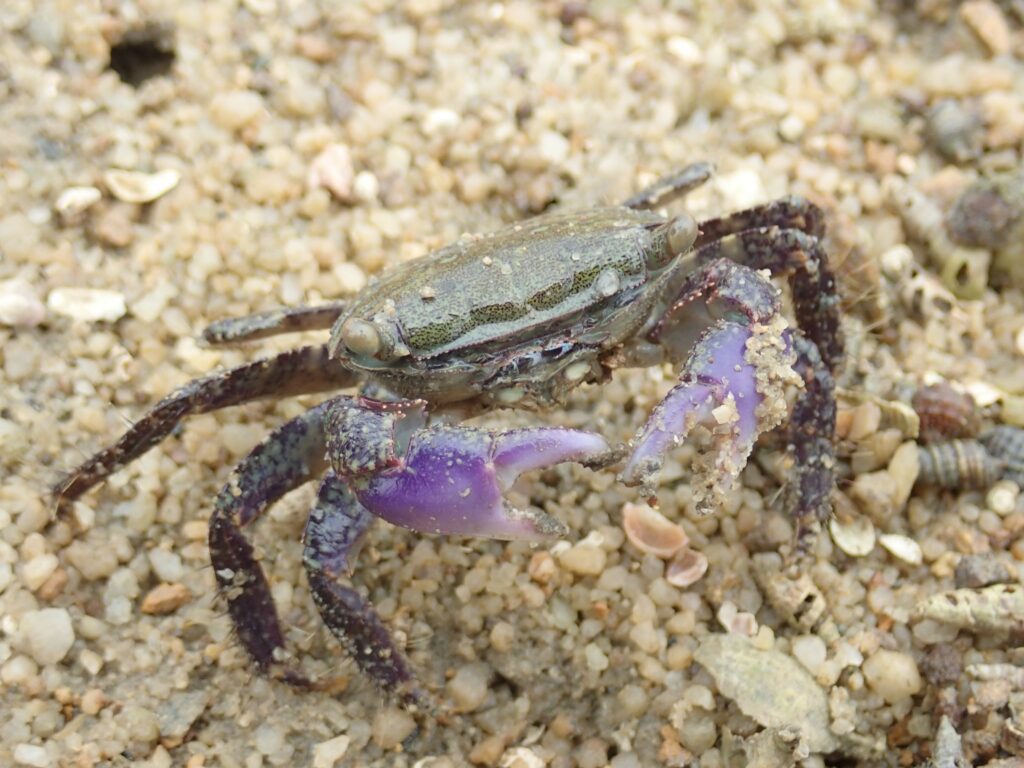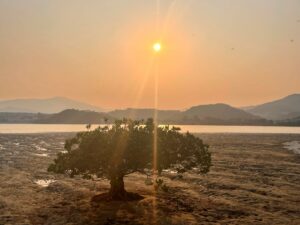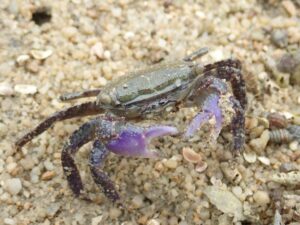CUHK
News Centre
CUHK study reveals the vulnerability of Hong Kong mangrove’s ecosystem
- The research team uses a novel technique to trace the nitrogen sources of invertebrates in the mangrove.
- Only a handful of crabs can digest mangrove leaves and transfer energy to the food web, indicating a lower ecological redundancy in the ecosystem than previously thought.
- The findings have important implications for the conservation and management of mangrove ecosystems.
Mangroves are critical ecosystems that provide important ecological services, such as sequestering carbon, controlling erosion and providing a habitat for a wide range of specialised invertebrates like crabs and snails. A research team led by Professor Benoit Thibodeau, Assistant Professor from The Chinese University of Hong Kong (CUHK)’s School of Life Sciences and the Earth and Environmental Sciences Programme, in collaboration with researchers from The University of Hong Kong and the University of Florence, conducted a new study on the nitrogen source partitioning and trophic positions of invertebrates in Tung Chung mangroves. They identified that the transfer of energy from the tree to the food web relies on a handful of crabs only and this energetic link is therefore more fragile than previously thought. It provides novel insights into the complex food web of this unique ecosystem and helps identify invertebrate species that provide key ecosystem services. The findings were recently published in the journal Ecological Indicators.
Relying on only a few crabs for energy transfer destabilises Hong Kong mangrove’s ecosystem
Nitrogen is an essential nutrient that sustains life on Earth. It is found in the amino acids that make up proteins. While invertebrates can use nitrogen from the marine environment, such as algae living on the sediment, many researchers believe that some crabs can also incorporate nitrogen from fallen leaves of mangrove trees. However, the importance of mangrove leaves in the diet of invertebrates is still a mystery for scientists. Therefore, the research team used a novel technique, which is the isotopic composition of amino acids, to trace the sources of nitrogen in the diet of invertebrates in the mangrove.
“We found that invertebrates had a relatively narrow range of nitrogen sources, most of them mostly relying on marine nitrogen but few species of brachyuran crabs are able to process a significant amount of mangrove leaves,” said Professor Thibodeau.
Mangrove’s ecosystem may be threatened by low ecological redundancy
Ecological redundancy is crucial in the ecosystem. It refers to the presence of multiple species or functional groups that perform similar ecological roles or functions within an ecosystem. These species or groups provide a level of backup or insurance against the loss or decline of other species or groups, helping to maintain the overall functioning and stability of the ecosystem. In this study, the team estimated how many species could perform the ecologically important role of transferring the energy from the mangrove trees to the food web. They studied the trophic positions of the invertebrates, which is a measure of their position in the food chain, and found that different crabs from the same genus sometimes had distinct trophic positions or feeding habits. Therefore, there is much less overlap between the feeding niches of these crabs than was believed, indicating a lower ecological redundancy in the ecosystem than previously thought.
“Our findings have important implications for the conservation and management of mangrove ecosystems,” said Professor Stefano Cannicci, Vice President and Professor from the University of Florence’s Department of Biology. “By understanding the complex food web of the mangroves, we can better protect and manage this unique ecosystem.” The research team will apply this novel technique to other mangrove areas in Hong Kong to assess their relative vulnerability.
This research was funded by the Marine Ecology Enhancement Fund and the Environmental and Conservation Fund.







